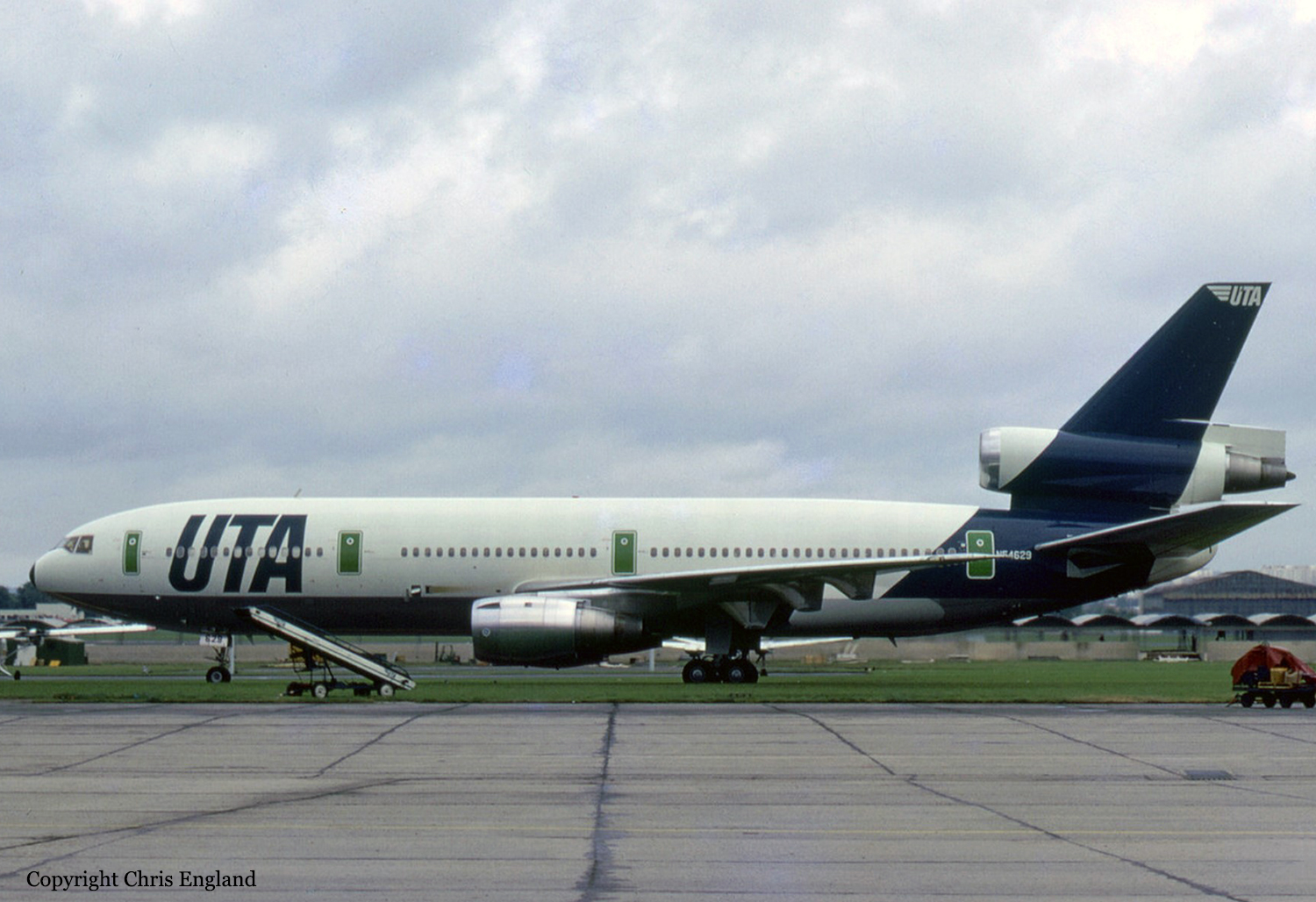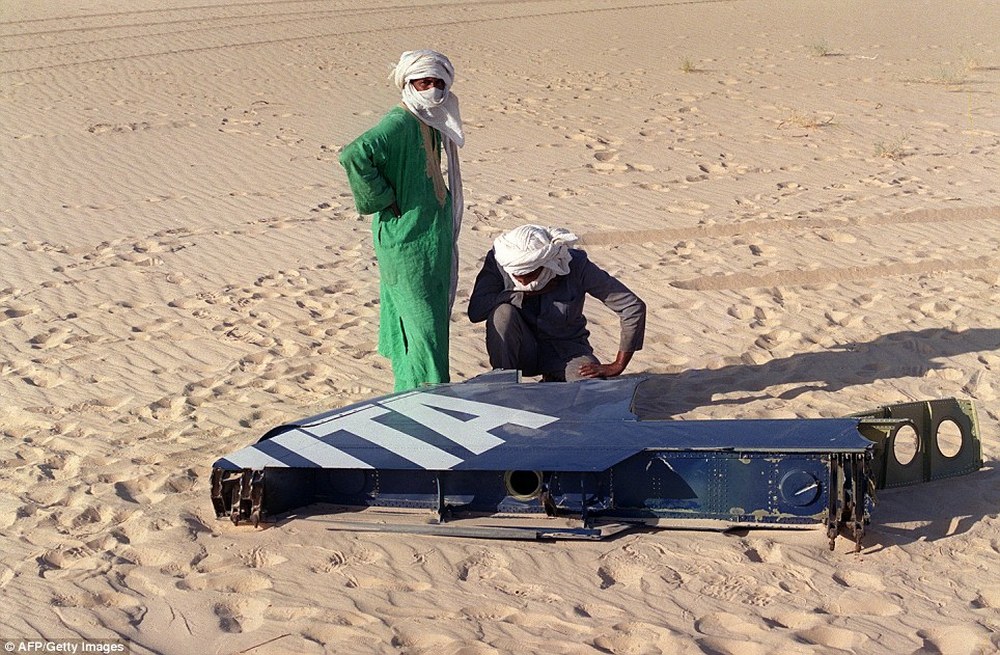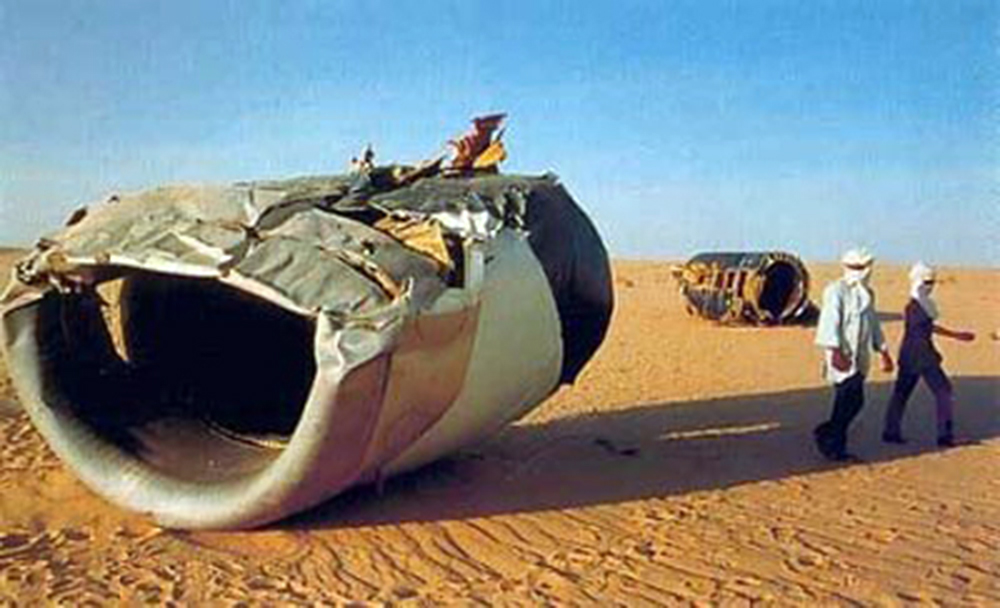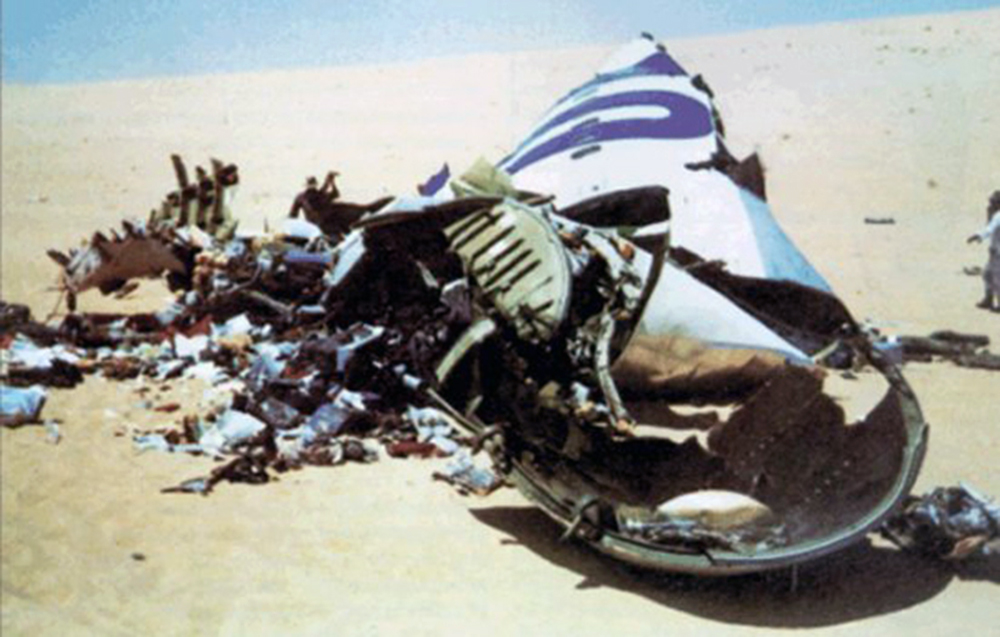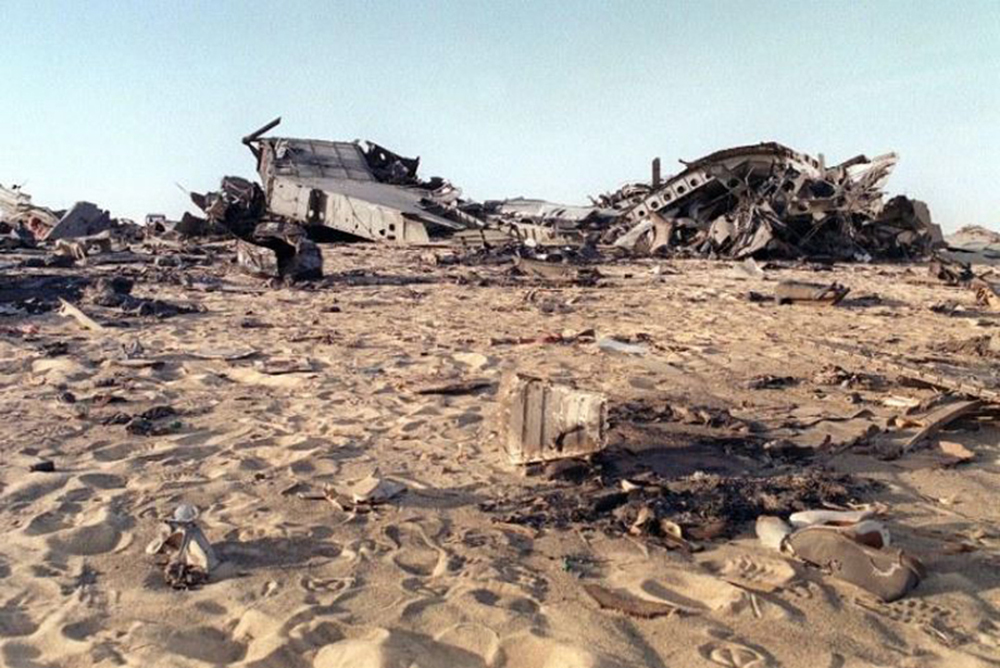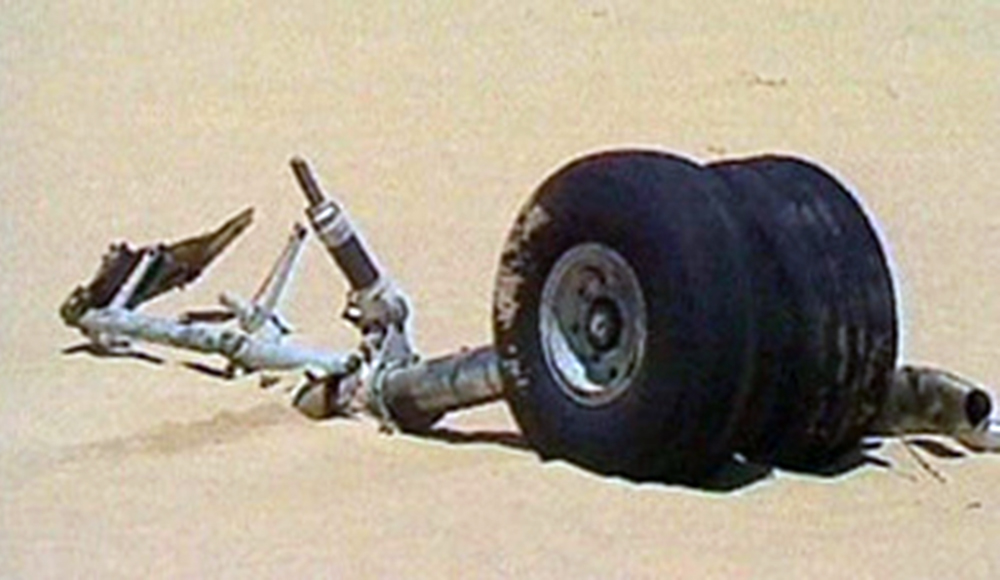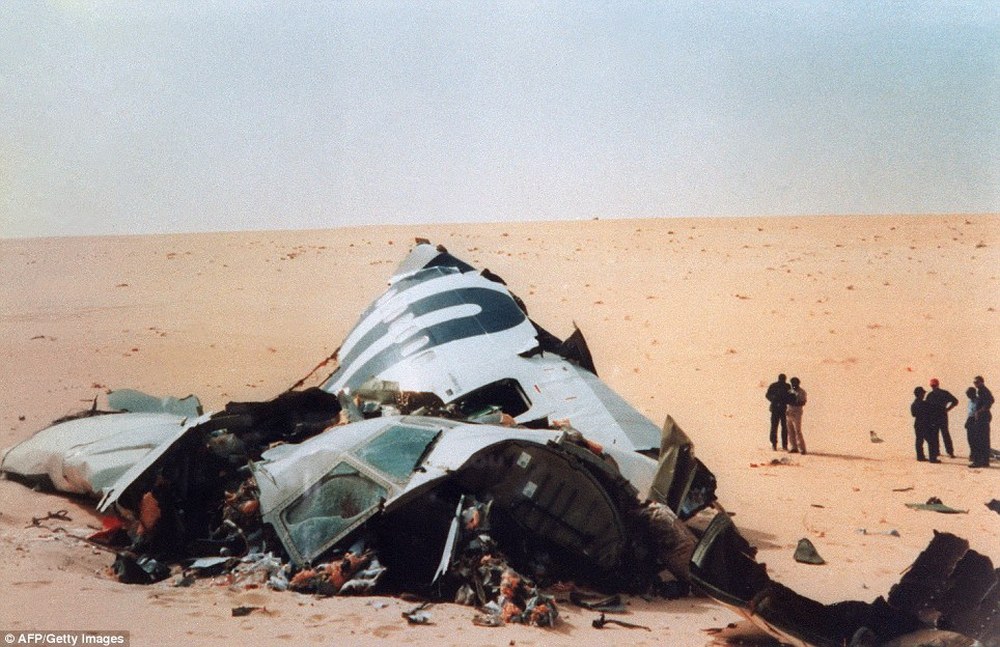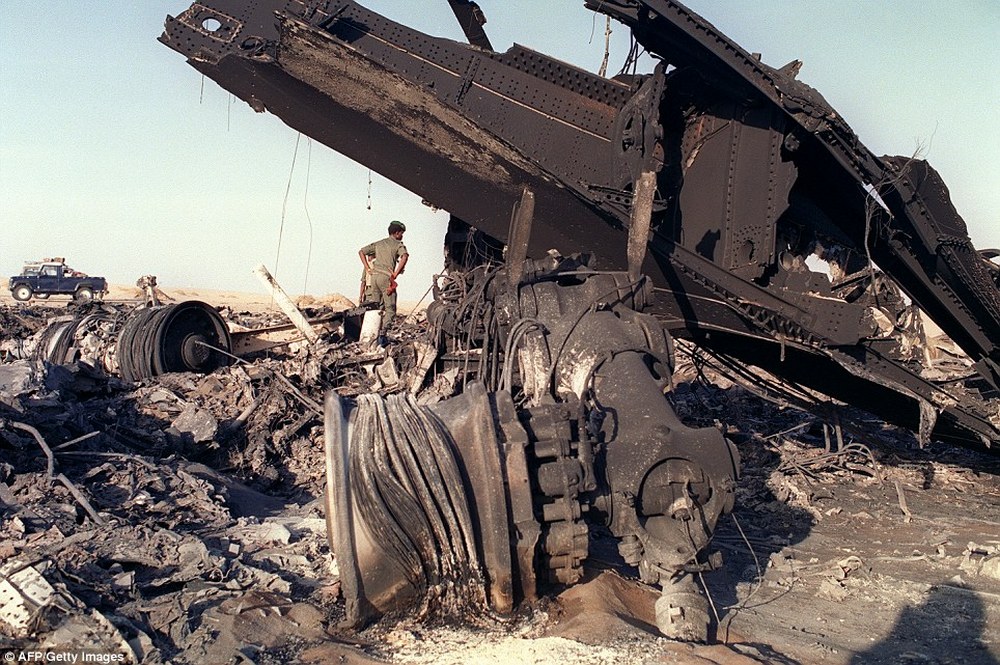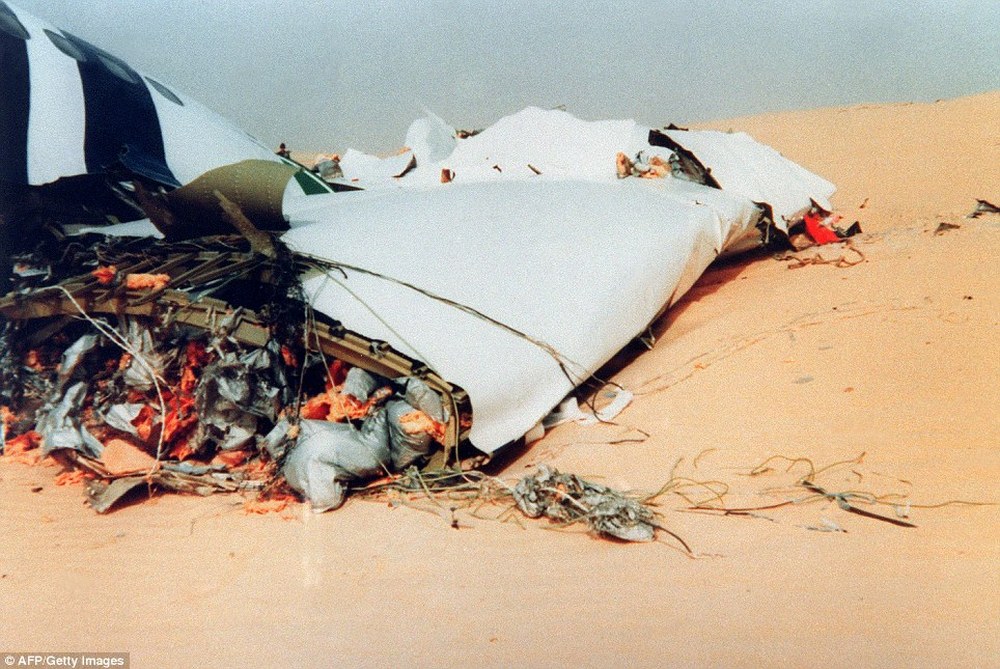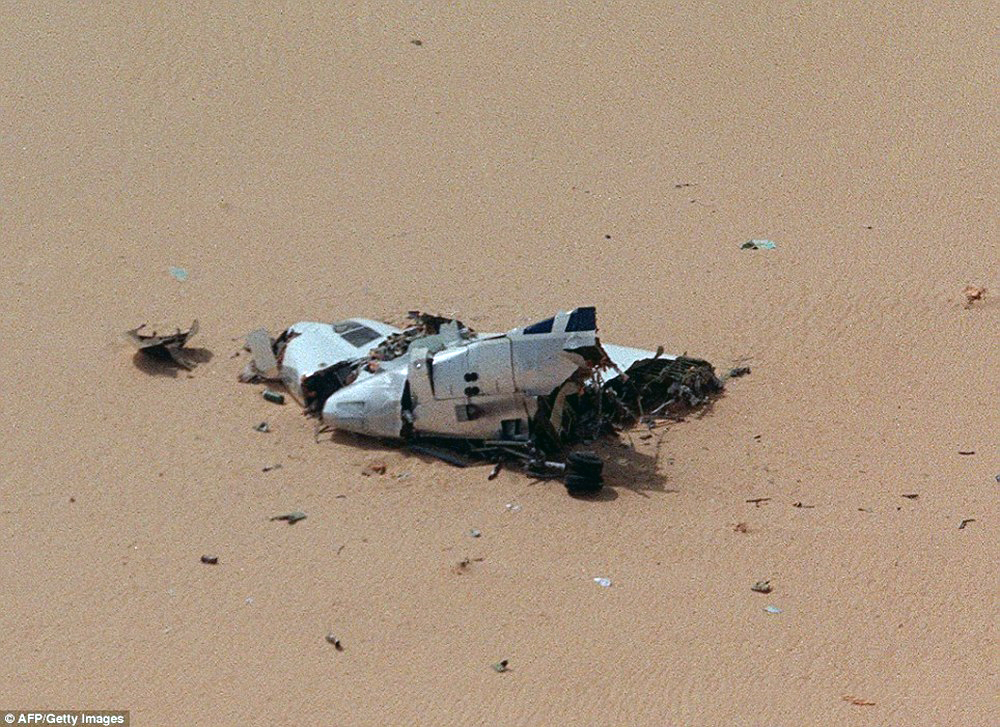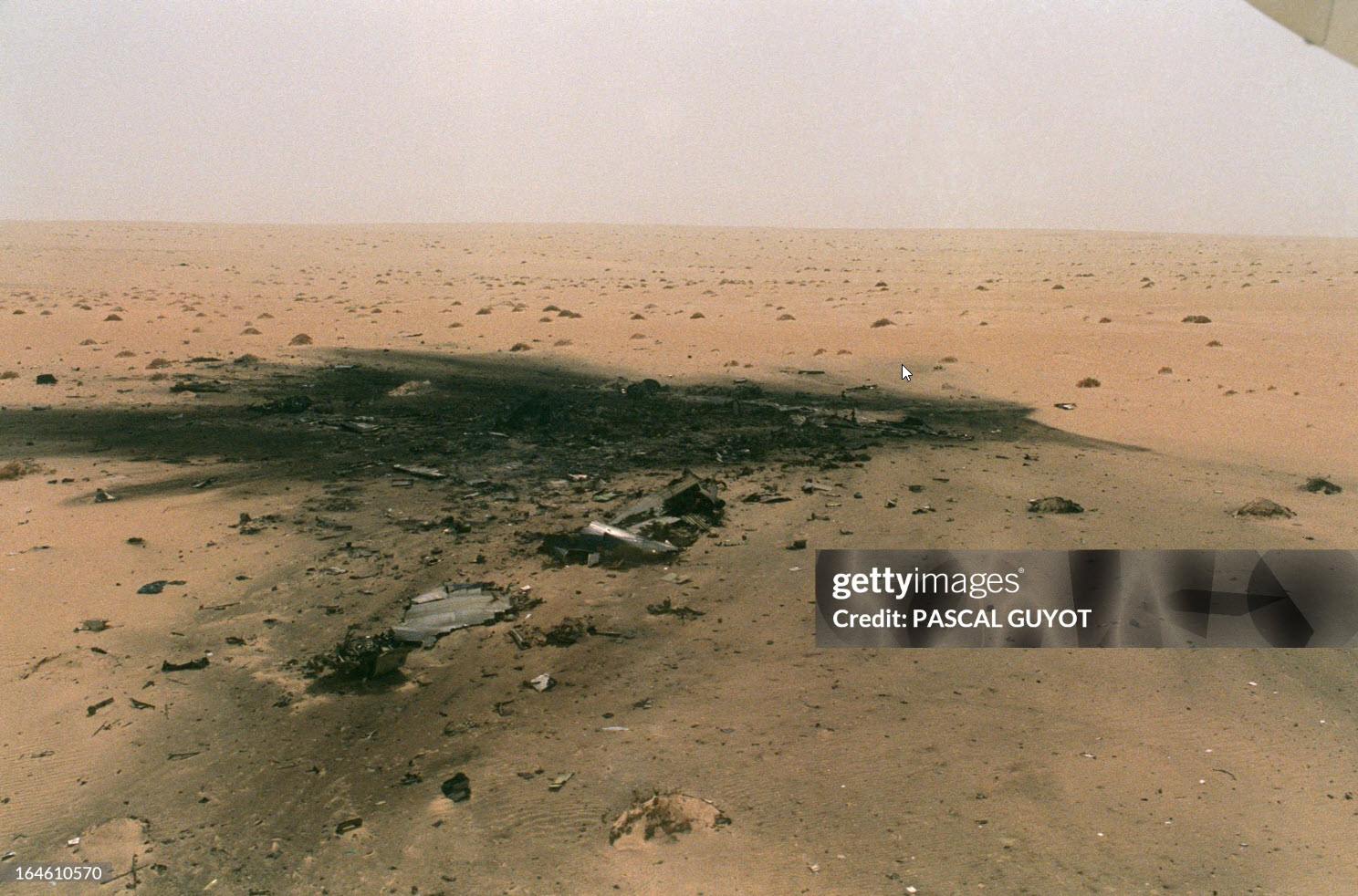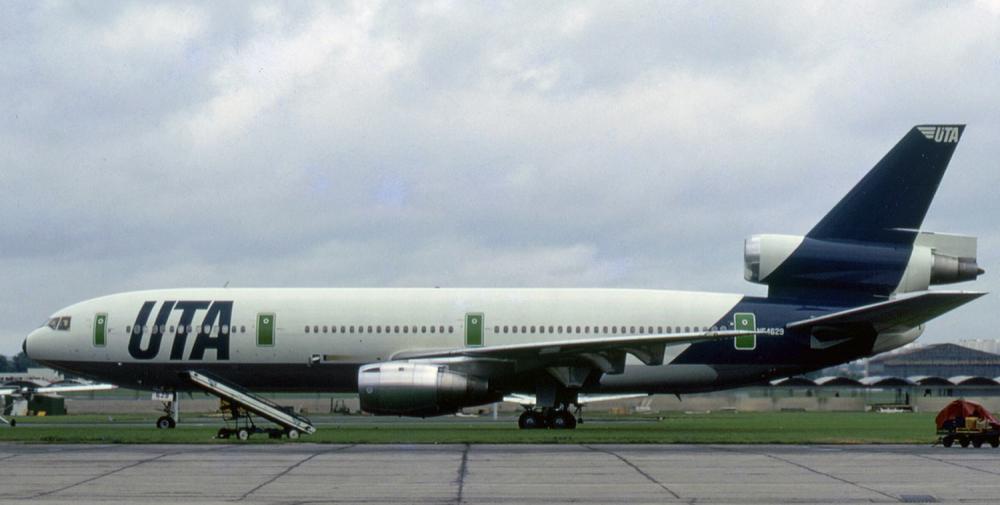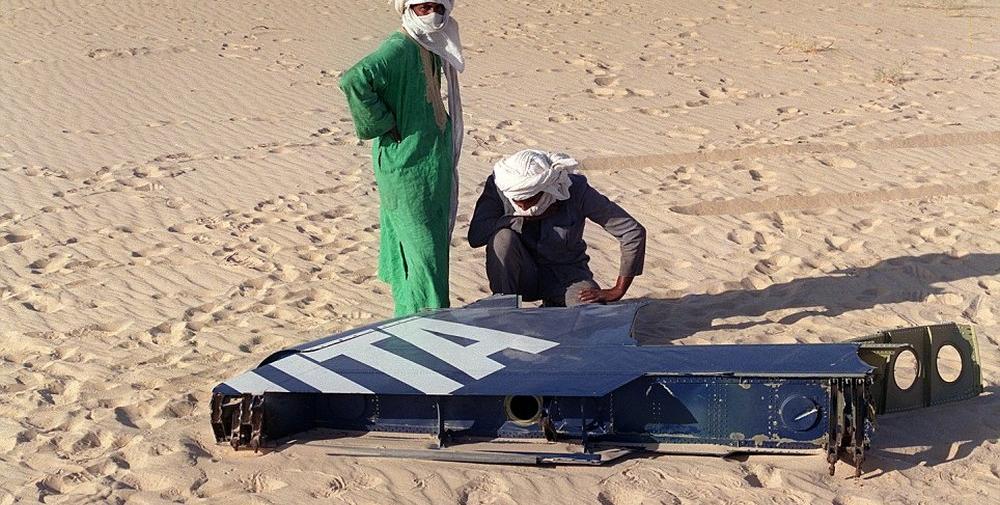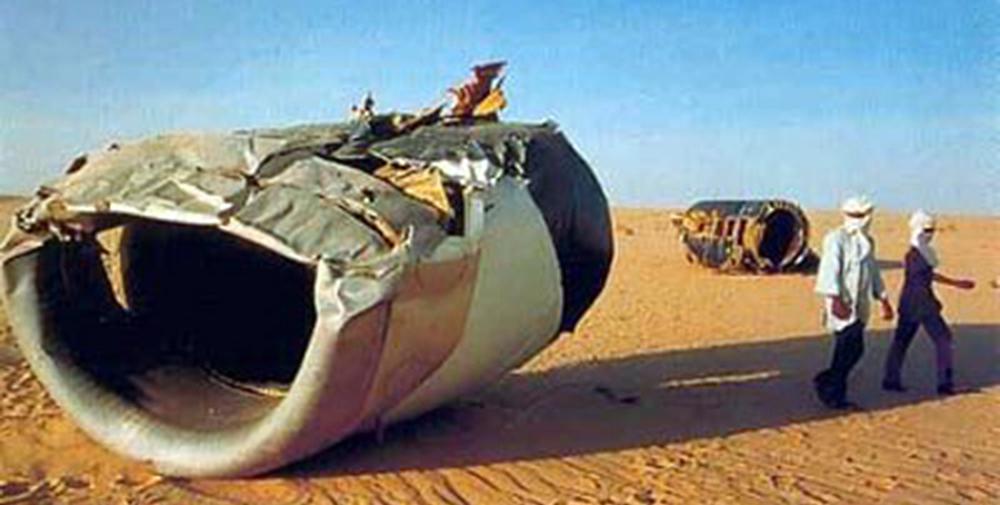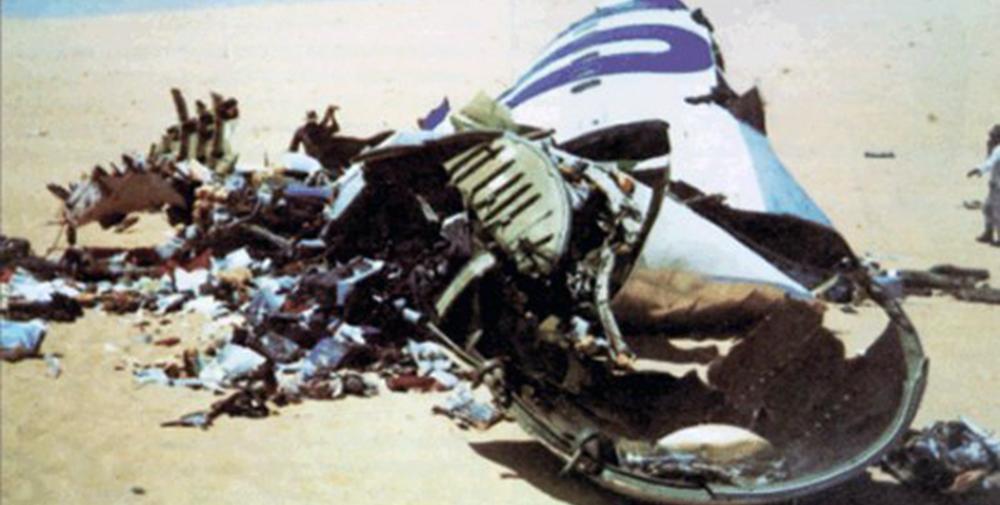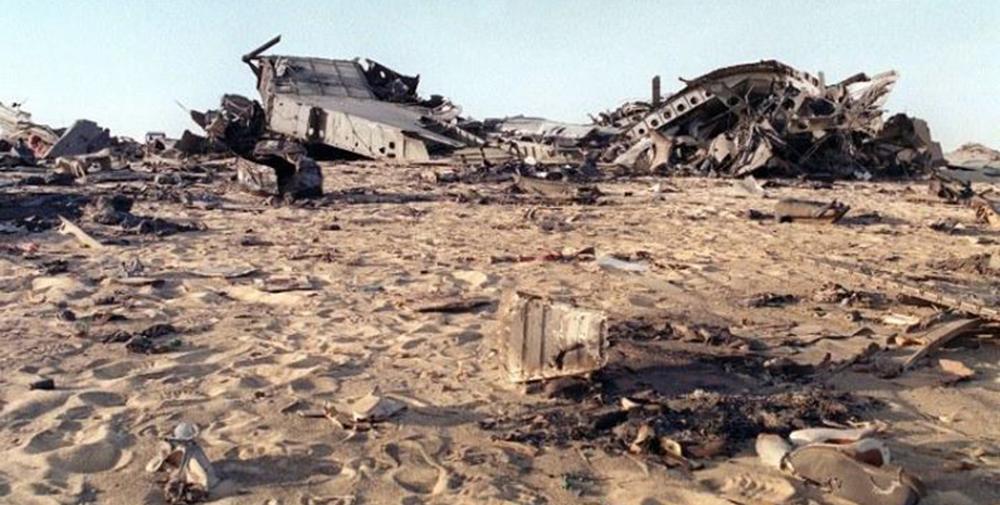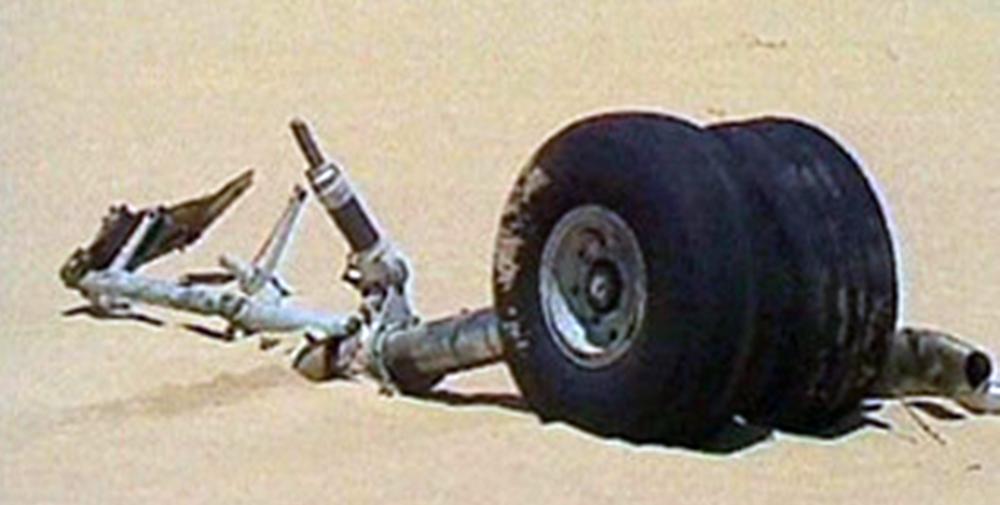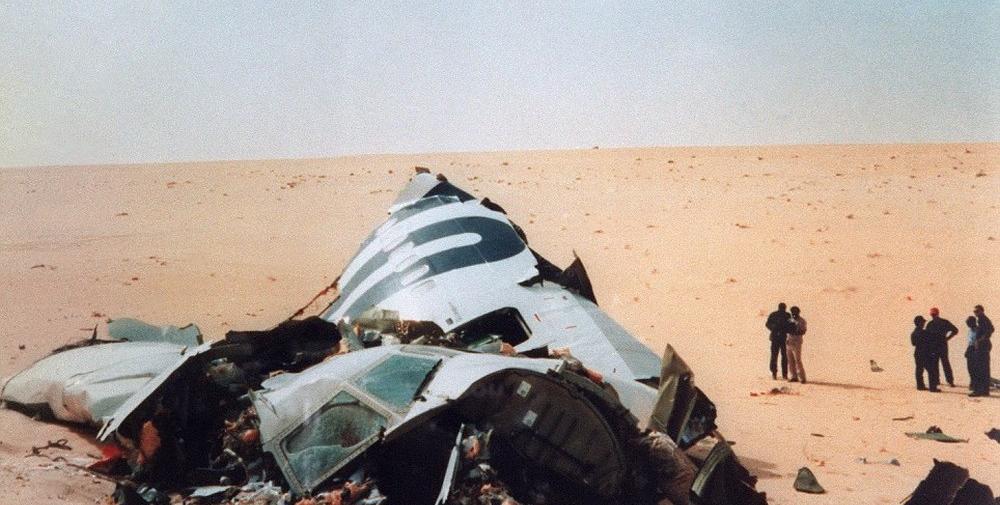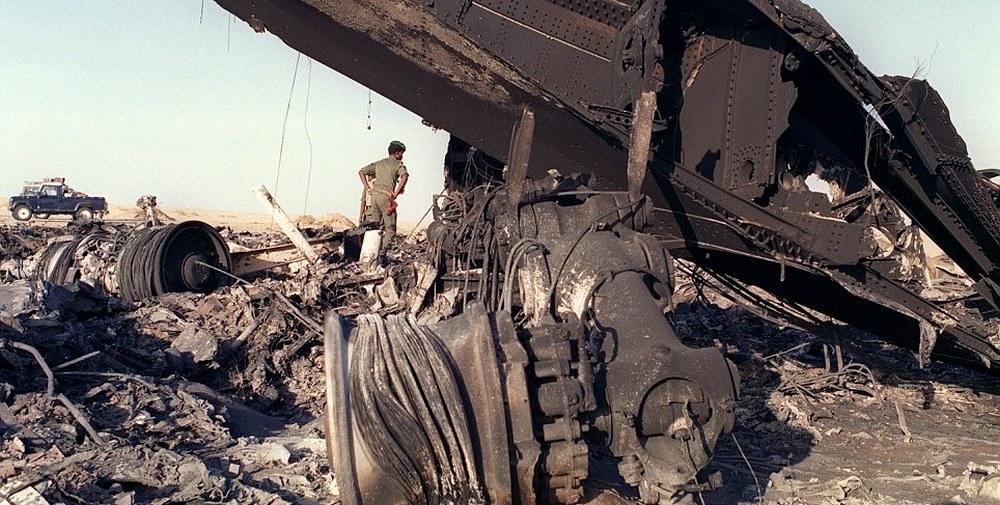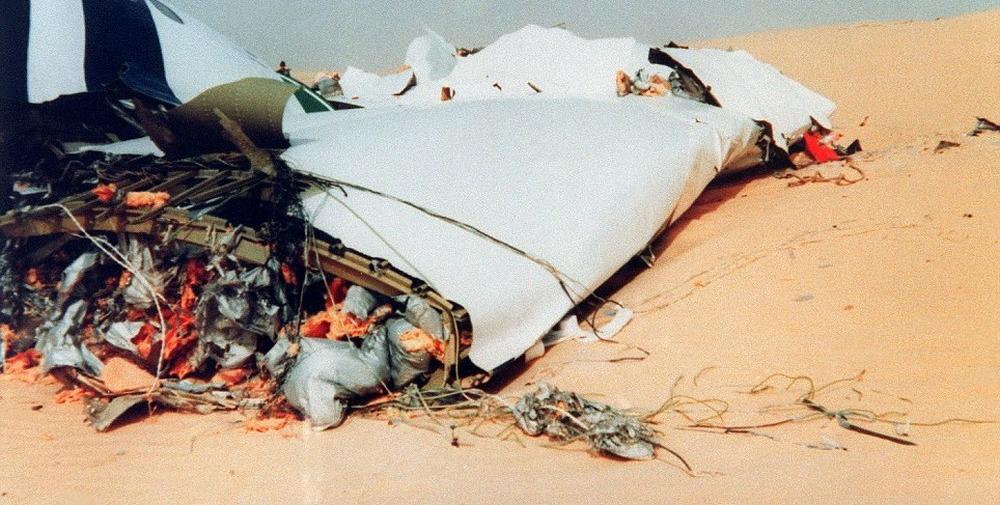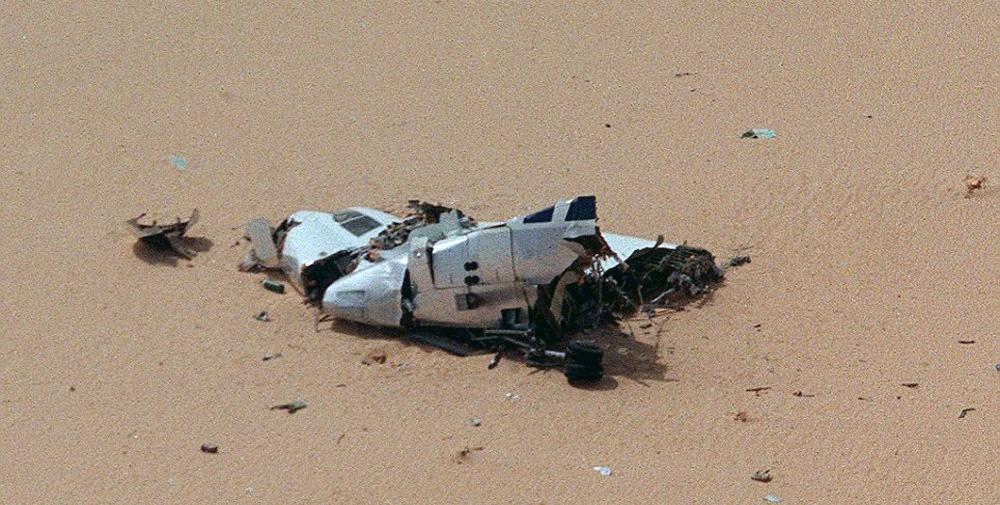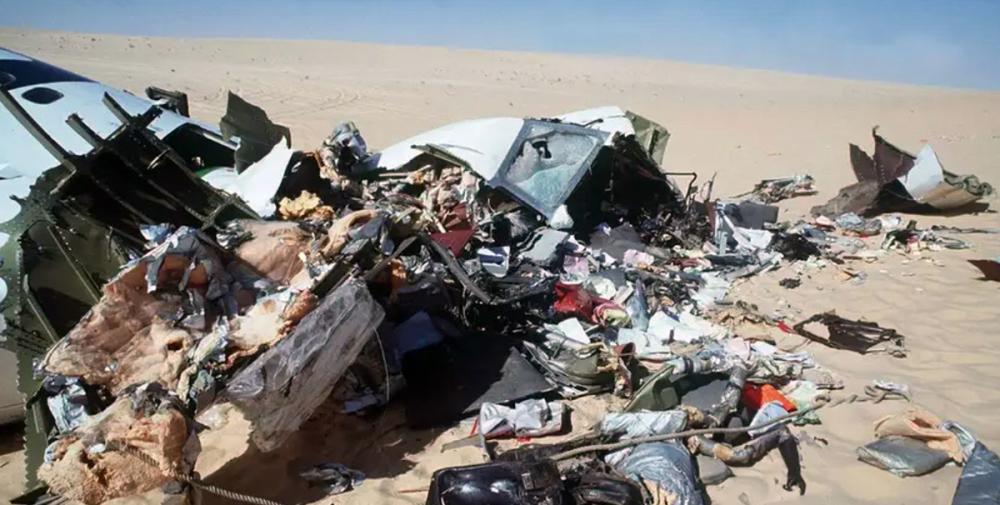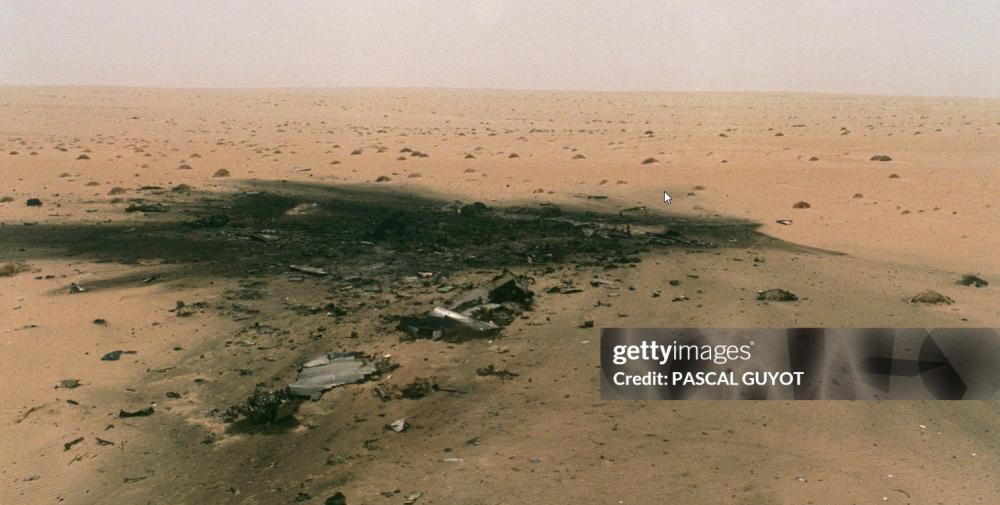Date & Time:
Sep 19, 1989 at 1359 LT
Type of aircraft:
Douglas DC-10
Registration:
N54629
Flight Phase:
Flight
Flight Type:
Scheduled Revenue Flight
Survivors:
No
Site:
Desert
Schedule:
Brazzaville – N’Djamena – Paris
MSN:
46852
YOM:
1973
Flight number:
UT772
Country:
Niger
Region:
Africa
Crew on board:
14
Crew fatalities:
14
Pax on board:
156
Pax fatalities:
156
Other fatalities:
0
Total fatalities:
170
Captain / Total hours on type:
2723
Copilot / Total hours on type:
754
Aircraft flight hours:
60267
Aircraft flight cycles:
14777
Circumstances:
The DC-10 departed N'Djamena Airport at 1313LT bound for Paris-Roissy-Charles de Gaulle Airport. Forty-six minutes later, while cruising at an altitude of 35,000 feet over Niger, the aircraft disappeared from radar screens and the crew did not send any distress call. It was quickly understood that the aircraft exploded in mid-air and crashed somewhere in the desert. SAR operations were initiated and the wreckage was found a day later in the Ténéré Desert, about 650 km north of N'Djamena, northeast from the Termit Mountain Range. Debris scattered on 100 km2 and none of the 170 occupants survived the crash.
Probable cause:
It was determined that the accident was the aircraft was destroyed by an explosion. The following findings were reported:
- The destruction was due to an explosive charge placed in a container located in position 13R in the forward cargo hold.
- The bomb was formed of pentrite, namely an explosive composed with a powerful and very sensitive crystalline nitric ester.
- The Investigation Commission assert that the most plausible hypothesis is that the explosive charge was inside baggage loaded at Brazzaville Airport.
- Observations made shortly after the accident on Brazzaville Airport made it clear that, at that time, the airport security measures in force were not in accordance with the ICAO standards and recommended practices (Annex 17 to the Convention on International Civil Aviation and Civil Aviation Security Manual (DOC 8973)).
- The destruction was due to an explosive charge placed in a container located in position 13R in the forward cargo hold.
- The bomb was formed of pentrite, namely an explosive composed with a powerful and very sensitive crystalline nitric ester.
- The Investigation Commission assert that the most plausible hypothesis is that the explosive charge was inside baggage loaded at Brazzaville Airport.
- Observations made shortly after the accident on Brazzaville Airport made it clear that, at that time, the airport security measures in force were not in accordance with the ICAO standards and recommended practices (Annex 17 to the Convention on International Civil Aviation and Civil Aviation Security Manual (DOC 8973)).
Final Report:
N54629.pdf25.94 MB
